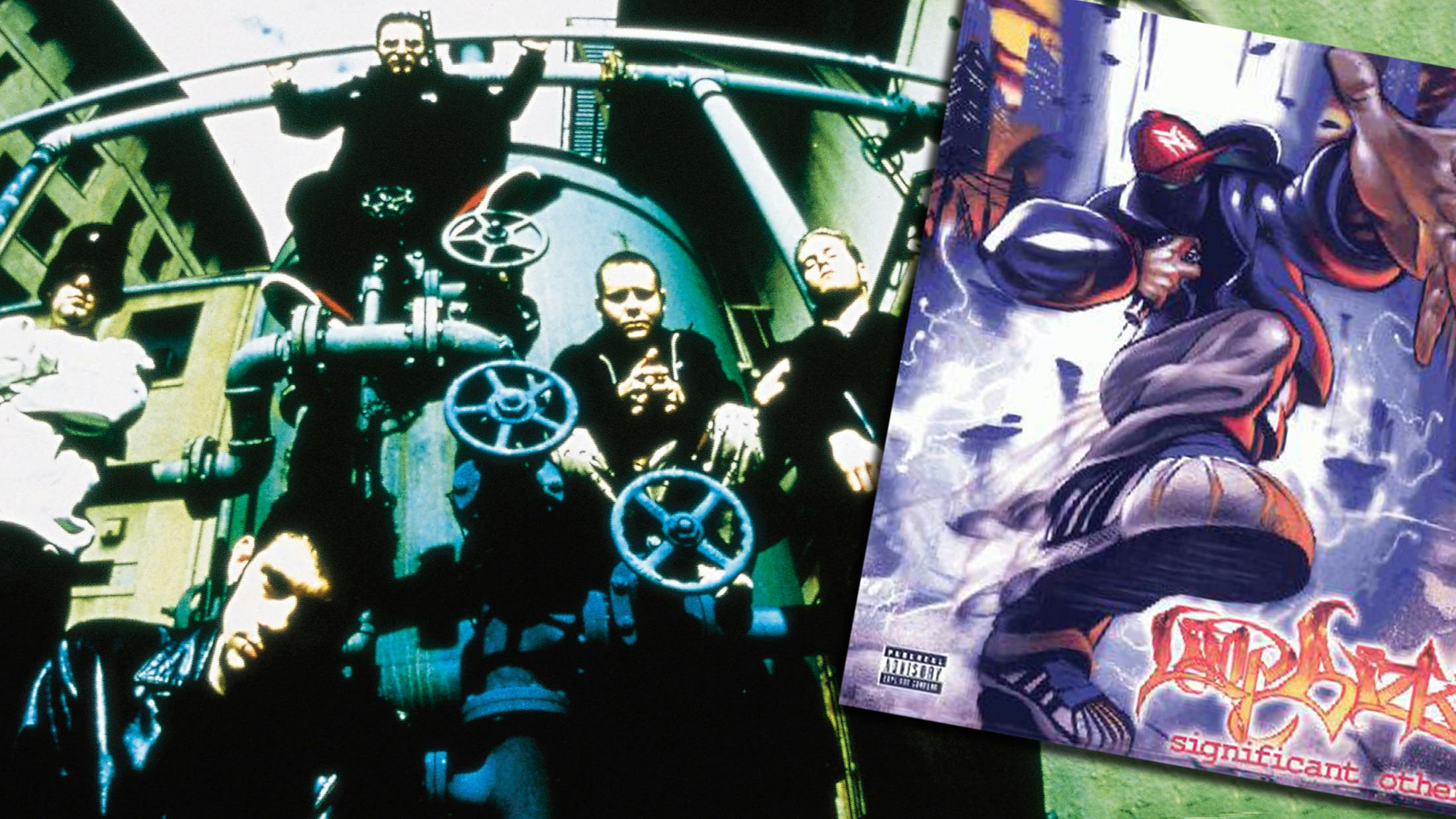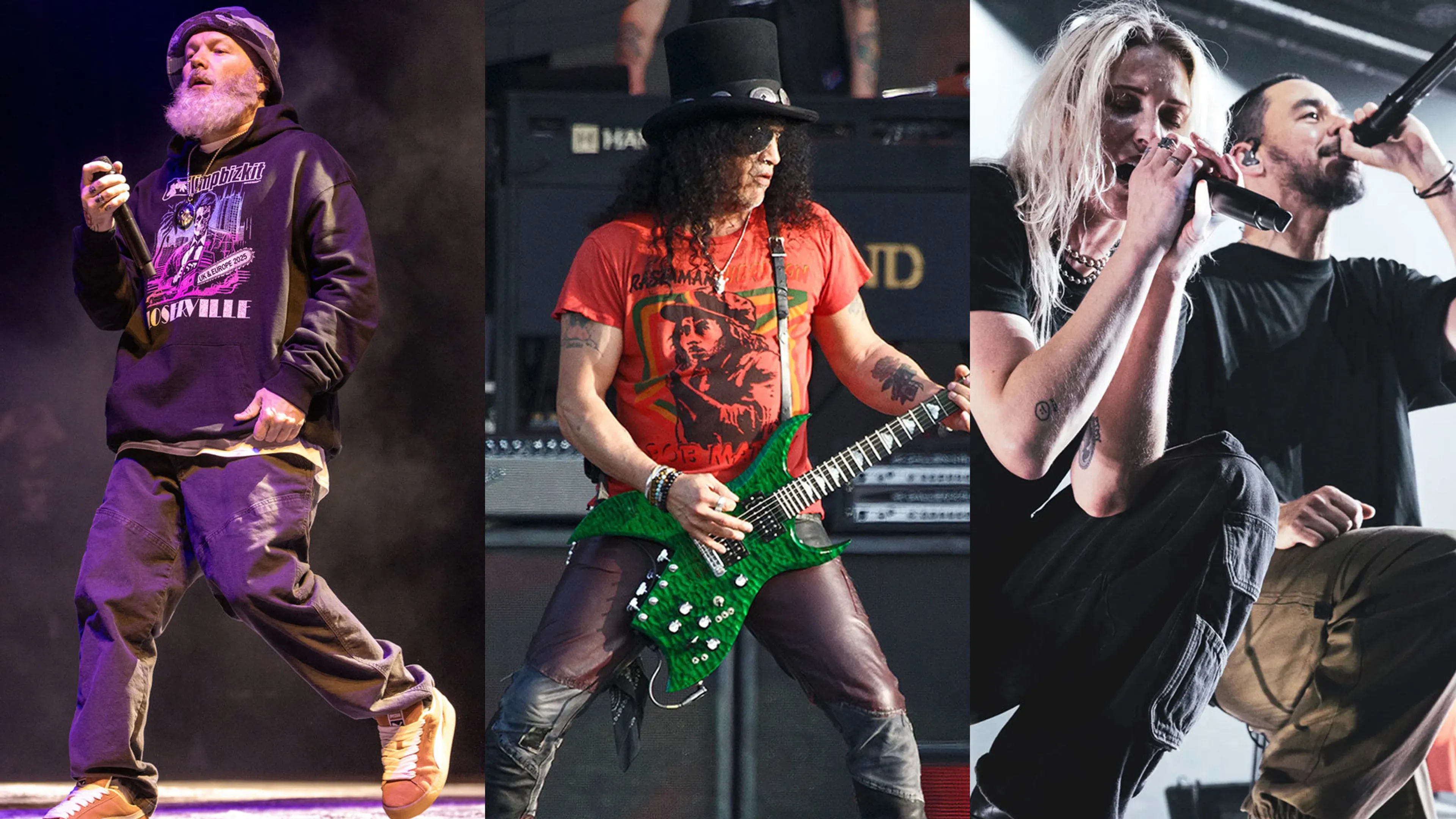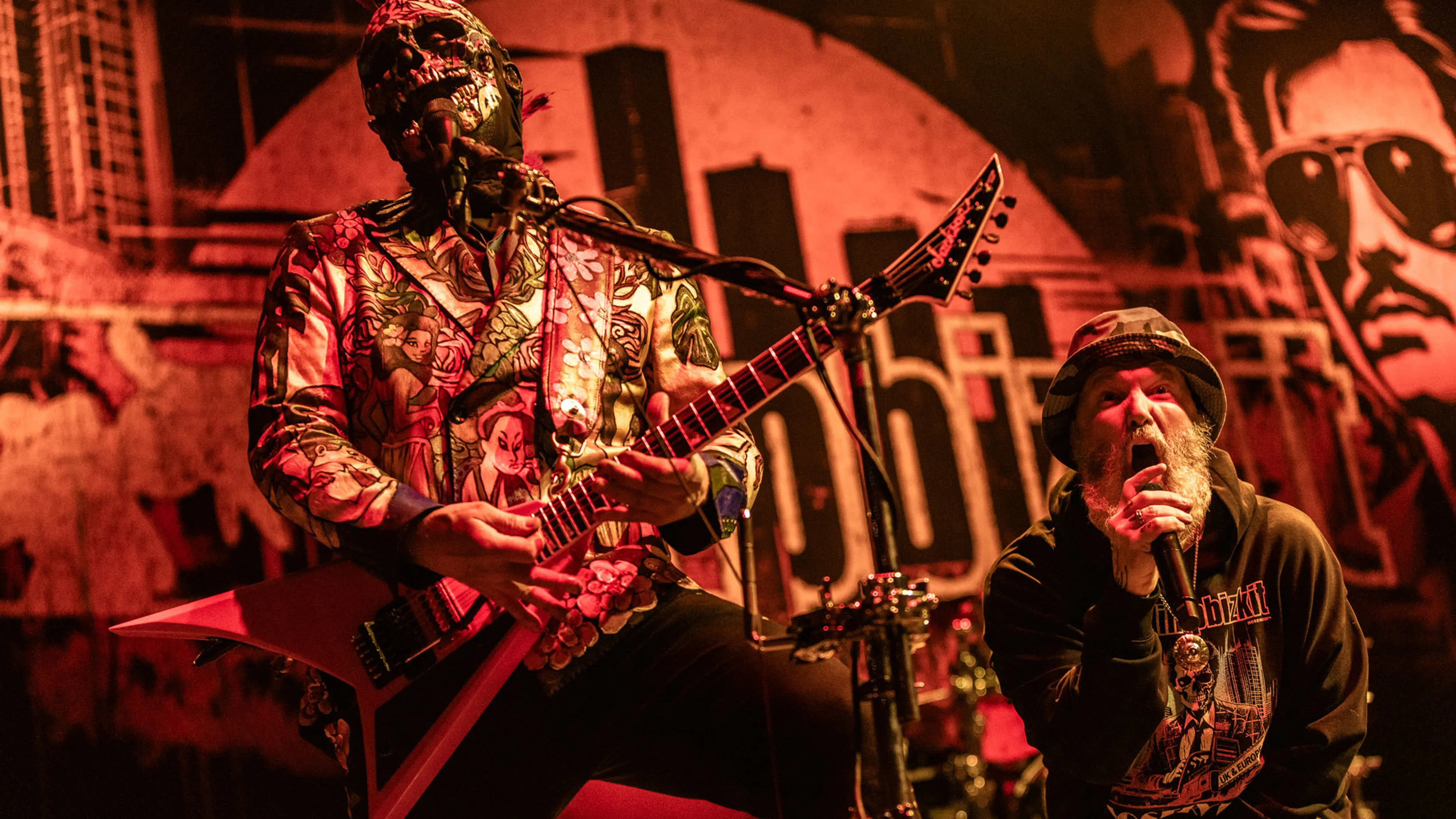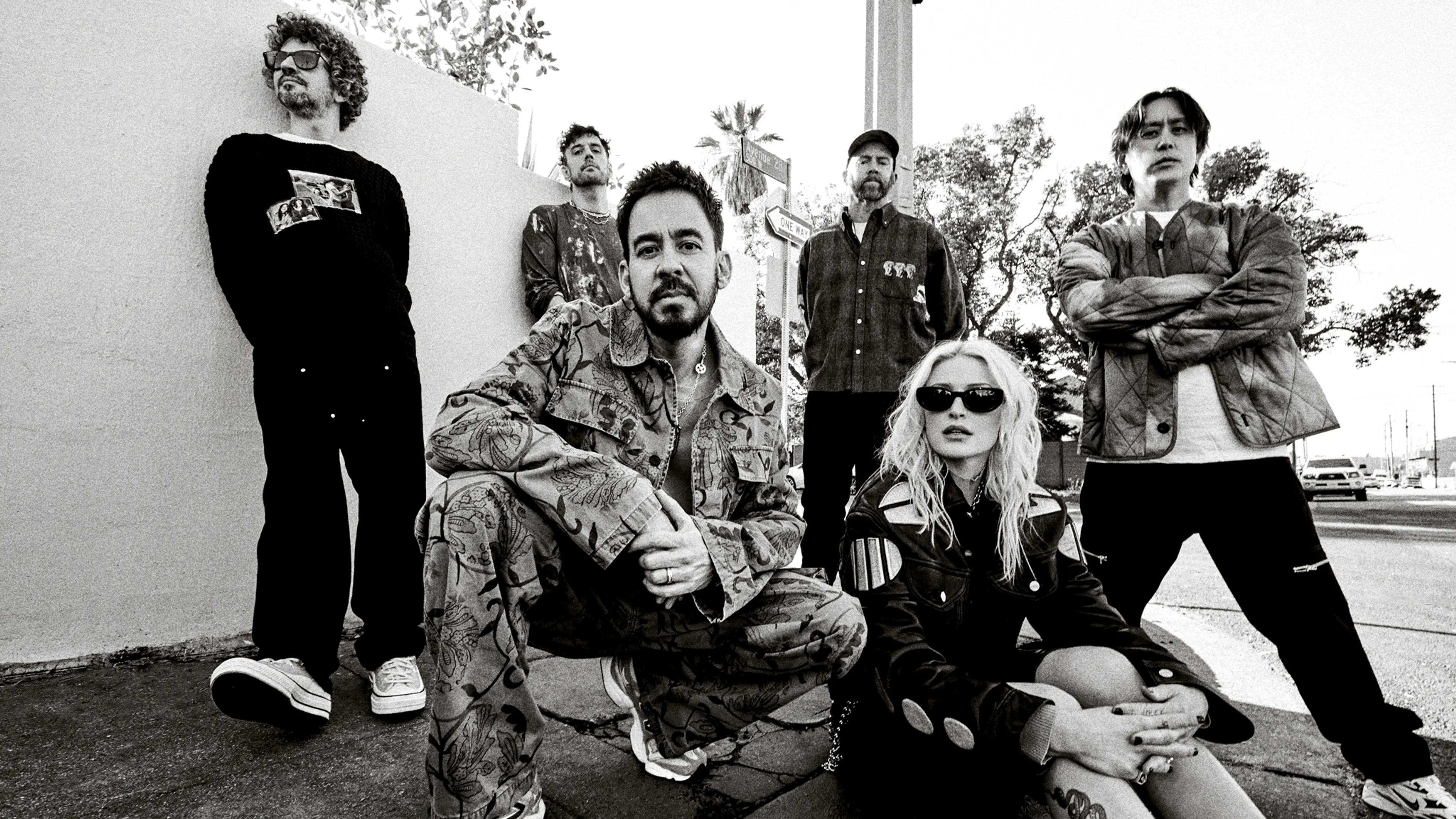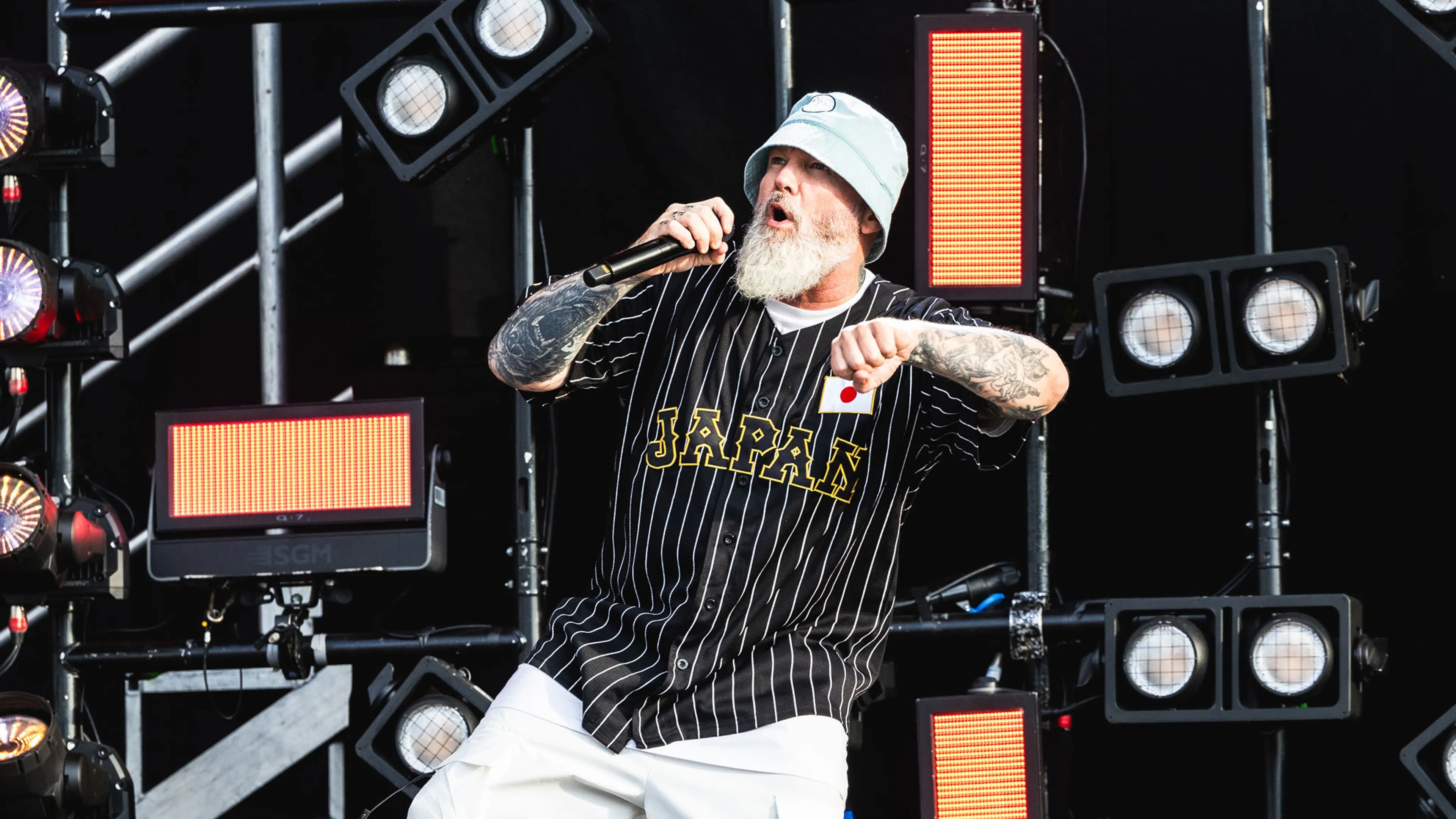“They [were] a band riding the crest of a musical revolution,” reckoned veteran Kerrang! scribe Paul Travers in his 3/5 review on the record’s release, “as opposed to one spearheading it.” It was a comparatively measured response compared to the majority of high-minded establishment critics struggling to rationalise this coming force, who saw only a sophomore release built on sophomoric content and completely missed the point.
“Fuck the critics,” came the predictable response.
The sort to drop Jackass-alike skits and their own braying laughter mid-record, such opinions were just fuel for the Limp Bizkit machine. So, were these dopey fratboys themselves, or just million-selling master manipulators who’d distilled America’s adolescent white rage into mass-marketable music? The truth lies somewhere between the extremes, and it took a delicate balance to stop the whole mess from careering off the rails.
Pulling one way, we had that red-capped frontman. Nowadays accepted as chief amongst heavy music’s eccentric uncles, it’s difficult to appreciate how legitimately out-of-place he looked swaggering onto the scene. “Meet the charismatic, motormouth, self-confessed workaholic and world-class schmoozer,” read the tellingly enthusiastic sell to one early K! profile piece. “A rap-loving outcast voted least likely to succeed by his schoolmates.” Coming across, frequently, as an unrefined, rock-ready, red-necked Eminem-clone, he was dismissed by many as a clueless Chad with no place at metal’s high table. Prone to deceptive introspection and the sort of cod-philosophy that spoke directly to his disenfranchised fanbase (“You’re alone in the world, no matter how many people you surround yourself with…”), others saw an authentic blue-eyed rebel without cause.
Again, those polarised opinions muddied the real picture.
Born Frederick Allen Mayne III and re-christened William Frederick Durst when adopted at an early age, he seemed destined to be a contrarian, always at odds with himself. Railing against the authoritarian attitudes of his adoptive father – a cop – he was an outsider who’d found solace in alternative music. The sound and showmanship of Michael Jackson changed his life. That didn’t stop him enrolling in the Navy after high school, of course. Dropping out, “injured” a year later, Fred found himself homeless, drifting. “I was just that fuckin’ guy drama centred around…” he reflected with surprisingly self-critical candour. That wouldn’t change.
He was nothing if not resourceful, however, and it wasn’t long before he had built a band around his greatest assets: that loud mouth, the larger-than-life personality and a pouty, relatable angstiness that wouldn’t seem out of place in any high school detention hall in the western world. Fans willing to look closer, too, found mischief in his brash persona, and a sense of his own ridiculousness buried well beneath the surface but just pronounced enough to let him get away with it. Just.
“We’re a fans band,” he explained at one point, exemplifying a tendency to drop humility in pursuit of self-promotion. “With a lot of bands, you can strip away the image and the hype and you don’t have much left. But when you strip everything away with us, you’ve still got an amazing band.”
“We don’t want to get caught up in the Hollywood bullshit,” he told us in another interview, with non-existent irony. “But you really have to be in LA to do what we do…”
Thank fuck, then, for Wes Borland.
